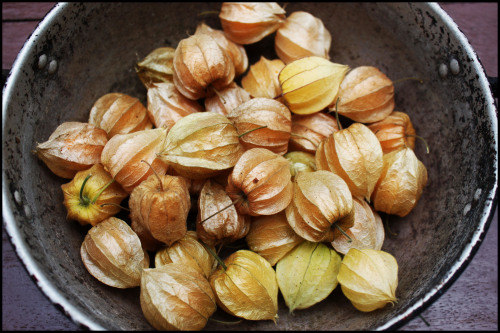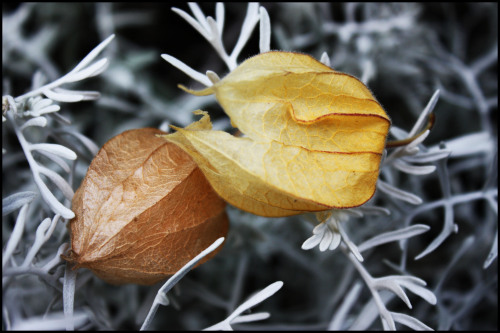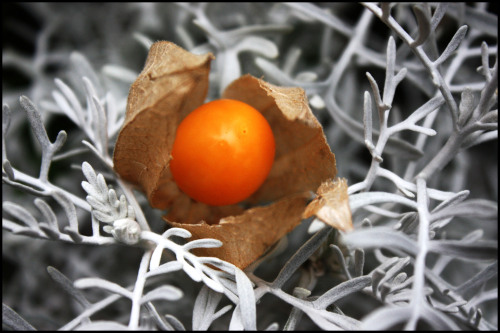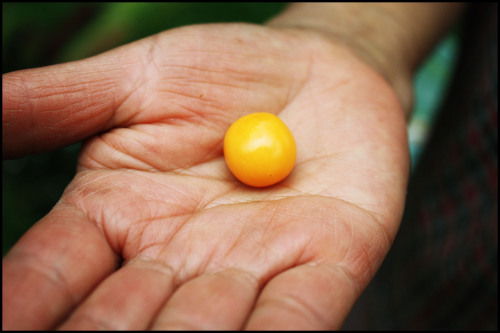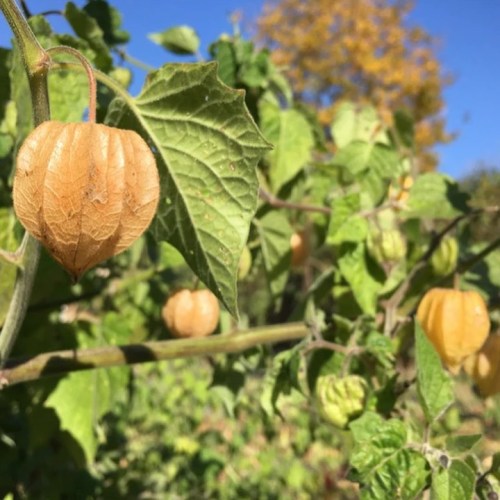#uvilla
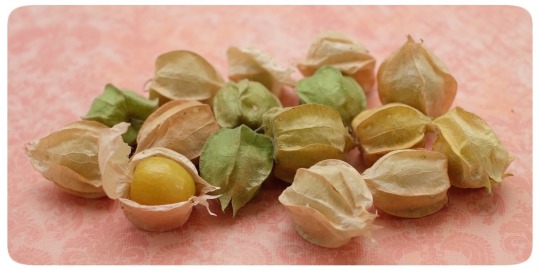
Ground cherries, also known as husk cherries, are members of the Solanaceaebotanical family which also includes eggplants, tomatoes and their lookalikes, tomatillos – in fact, ground cherries and tomatillos belong to the same genus, Physalis. While they are native to Mexico where they are known as coztomates or depes, they can grow anywhere tomatoes do well.
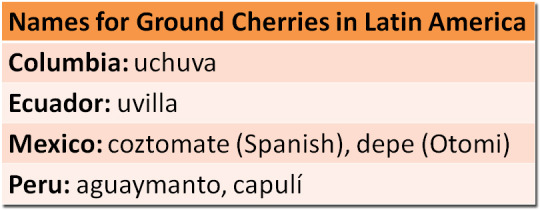
Ground cherries are prepared just like tomatillos: remove the papery husk, rinse, and eat. They have a bright, sweet-tart flavor that reminds us of pineapple. We find that they are just at home in savory recipes as in desserts. However, they also simply a great table fruit.
Ripe ground cherries have a warm apricot hue – unripe fruits are yellow. Like tomatillos, ground cherries should be stored in their husks. Placed in a cool, dark place they should keep for several weeks. Ground cherries also freeze well though they will loose their texture and will be best suited for sauces.
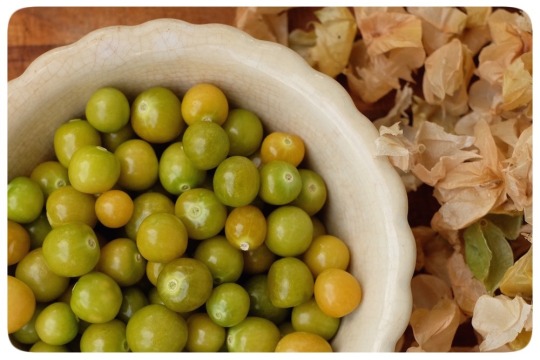
Note: The Cape gooseberry, also known as Inca berry and Peruvian ground cherry, is another species of Physalisthat can sometimes be found at farmers’ markets and seed catalogues. While the fruit is originally from Peru, they are particularly popular in South Africa (their name comes from the Cape of Good Hope).
Uvilla is a fruit that is indigenous to high altitude South America, though now is cultivated in both England and South Africa. In its shell, it looks almost exactly like a tomatillo, and the two are in fact related plants. To eat the fruit, you just push back the shell and take out the small berry. It tastes sweet when ripe, with a mildly tart flavor, which is why it’s often used for snacks and jams. Best of all, we have a million Uvilla berries in our yard, which I often pick off and pop into my mouth when walking through the yard.
Post link
Uvilla seeds are back in stock now, thanks to the persistence of our coworker Maebh Aguilar (@cryptogam_), who made it their goal to get a good seed harvest on their beloved ancestral crop from the Andes this year. They crawled, mulched, smooshed caterpillars, and sought out every good fruit, squeezing the seeds out for you.
Uvillas taste incredible: tart, sweet, so bright and tropical like citrus. Unlike Ground Cherries, their fruit does not fall on the ground when ripe. They are originally from Brazil but long ago naturalized in high-altitude, tropical Peru and Chile. Back home in the Andes, it is known by many names, including “Aguaymanto,” “Uvilla,” and “Uchuva.” In English-speaking places it is often called “Cape Gooseberry” (named for the Cape of Good Hope) or “Goldenberry.” In France, it is sometimes marketed as “Amour en Cage” meaning “love in a cage.” At Truelove, while we love Ground Cherries we prefer eating Uvillas. However, while their plants are much more sprawling, they are a bit slower to ripen and less productive. That said, this is a surprisingly good late summer treat!
#uvilla #aguaymanto #uchuva #capegooseberry #goldenberry #amorencage #physallisperuviana #seedkeeping
https://www.instagram.com/p/CZiVm0pruDO/?utm_medium=tumblr
Post link

